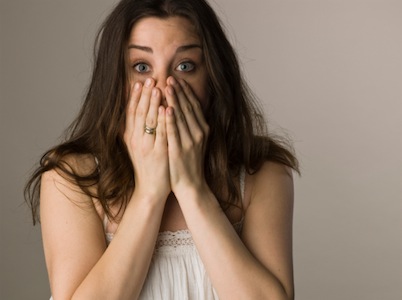The Daily Mail recently published a piece by a woman who says she wishes she’d never had her two children. Chanel Dubofsky defends her bravery for admitting what few would.
On Wednesday, I posted Isabella Dutton’s piece on wishing she had never had children to Facebook, with the statement, “I am really, really, really grateful that this piece was written.” And then, almost immediately, I took it down. Sometimes the Internet is an exhausting place, so porous are its boundaries. I could anticipate the questions: Why would this woman be so horrible as to write about her children like this? Why the pictures? Why divulge their real names? How could anyone think this was defensible?
My gratitude mainly stems from the fact that I’m tired. Anyone who has ever had to speak up often on a taboo subject knows what it’s like to be “that kid,” the one who makes everyone else sigh and say, “Oh, THIS again.” It can lead to fatigue pretty quickly, but it doesn’t always mean the conversation shifts. Sometimes people stop listening.
Fifty-seven-year-old Dutton, though, has done something powerful with this piece: Not only has she said the unthinkable—that she wishes she never had children and regrets what they’ve meant for her life (“I resented the time my children consumed. Like parasites, they took from me and didn’t give back,”)—but also she’s used their real names, as well as that of her husband. She’s the woman of everyone’s nightmares. She talks about her reality and she doesn’t spare anyone. Maybe the worst part, the most confounding, is that she did everything she was “supposed” to do, what women are told they should do: She married young, had children young, she thwarted daycare, she breastfed, she even had more than one child (because she felt like she was being “selfish” if she had only one), and still, she was miserable, still she hated every second of it.
The older I get, the more I think I realize what parenting involves, physically and emotionally, and the more secure I feel in my decision to not do it. (The reader who is a parent will now tell me that I will never understand what parenting is until I do it. Fine.) There’s a lot of animosity being directed at Dutton because of this piece, because not only did she say these things, but she made them real by including pictures of her children and husband. This is perhaps what people find the most shocking and the most unredeemable.
To me, though, it’s not cruelty. It’s evidence of what happens in a culture of deep, unrelenting misogyny—when women are told, again and again, that what we feel and believe and know is not real. All women are supposed to be mothers, so just do it. When you are one, you’ll understand. You’ll feel the love. It will all come together.
“What have I done?” Dutton thought, after she gave birth. A friend of mine whose child is about two months old told me that she thought the same thing when her son was born. This friend wanted her baby. She would not have had him if she didn’t want to, that’s how she works. She and her husband did not start trying to get pregnant until they were “ready,” knowing that actually, they would never really be ready, that if you understand what it really means to be a parent, there’s actually not such a thing. You have to want it. You can’t just do it and hope for the best. The cost is too high, and Dutton, by providing us with pictures of her children, is showing us that. The photos force us to look at what happens when we theoretically say people have choices, but don’t mean it, don’t protect those choices, fortify them, or listen to them.
Could Dutton just not have had children? Maybe. Her instinct not to, however, was dismissed. She knew she didn’t want them, but did it anyway, because she valued her marriage (“It would be unfair of me to deny him the chance to be a dad.”), and maybe because she thought if she just jumped, it would all make sense.
I don’t know what the impact of this piece will be on Dutton’s children. Now, Dutton is caring for her 31-year-old daughter who has multiple sclerosis. She “would cut off [her] right arm if she or Stuart needed it.” I don’t have to interrogate that as being true or not. Dutton’s not interested in making herself look good in this piece, that’s not debatable. There is a difference between love and regret, but they’re not in opposition to one another.
In the end, people are going to continue to be angry about this piece. We’ll continue to call Dutton selfish (leaving her husband entirely out of the equation), and we’ll make sure to include the word “woman” as often as we can in our criticisms of her. Somewhere, though, I hope we can find the sensibility and the bravery to confront the fear and anxiety that gets triggered when women speak their truths.
Chanel Dubofsky is a writer in Brooklyn, New York, and the creator and editor of the Marriage Project, an interview series about marriage in imagination and reality. She has published essays in the Forward, Tablet, Gender Focus and The Pursuit of Harpyness, and fiction at Monkey Bicycle, Matchbook and Quick Fiction. She blogs at Diverge (www.idiverge.wordpress.com).
Related Links:

